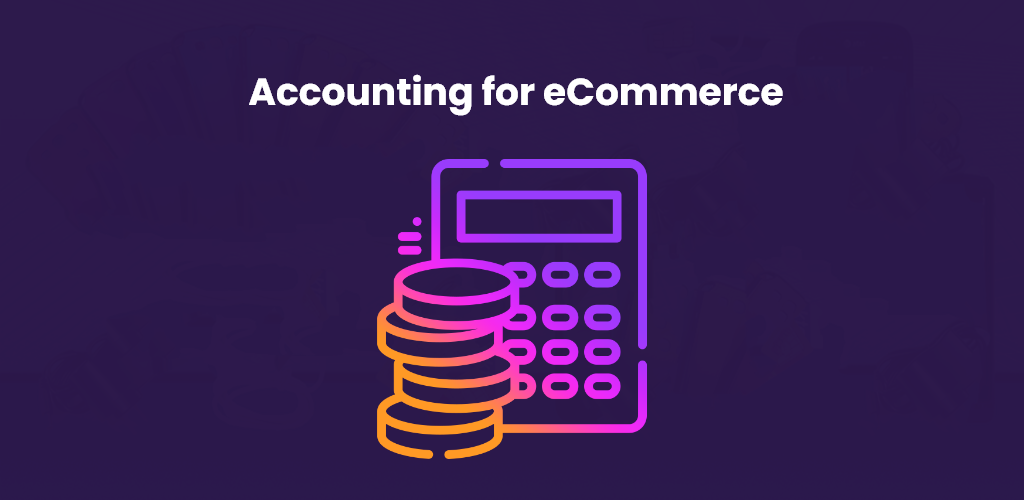Accounting for eCommerce
Once you’ve got your store set up and you’re selling, you need to be able to keep your activities in order so that your business can thrive. The first year of your business is a crazy busy time, and money can be tight. Because of that, many new business owners often think about skipping hiring an accountant or a bookkeeper in favour of saving that cash. But that can be a mistake, since there is so much to cover – and if you leave it to the last minute, or miss deadlines, you can end up with huge fines being issued from HMRC.
Our top tip, whatever point you’re at prior to engaging an accountant or bookkeeper for your business – and we cannot say this enough:
DO NOT WAIT UNTIL JUST BEFORE THE DEADLINE TO FIND AN ACCOUNTING PROFESSIONAL.
At this point in the year, accounting businesses are already at capacity, and there is very, very little chance that they will be able to help you meet the deadline, and you’ll end up with a fine. Get your accounting support lined up as soon as possible.
Should you hire an accountant?
The answer to this question depends on a number of factors – although in the majority of cases, businesses need accounting support.
- Are you confident with accounting tasks? If you’ve already done accounting and bookkeeping tasks before, then you may be able to handle most of your accounting.
- Are you familiar with HMRC’s requirements for small businesses? If so, and you can handle the numbers, then you may be able to do the accounting yourself.
- Do you have time to handle your accounting? There’s a lot to get your head around, and if you’re already learning eCommerce and marketing, and everything that goes with it, then chances are you might not have time to do the number crunching. In which case… Hire an accountant!
- How much do you enjoy crunching numbers? You’re already working with figures in your eCommerce business, but if you’d rather be marketing and promoting your business, hire an accountant.
While it is easy to see hiring an accountant as a cost to your business, it is better to consider it an investment – because they will free your time, give you advice, and keep your business on track to achieve the growth you’re aiming for.
What can accountants handle for me?
When you start working with accountancy professionals – especially those that have specialist knowledge of the eCommerce industry, you can expect:
Someone who understands the challenges of online retail and the relevant financial regulations
Someone who knows how different sales channels work, and release your money
Someone who can recommend, and help you use the right bookkeeping and accounting tools effectively
There’s often confusion about what accountants can handle for your business, and there are different types of accountant, which makes it even more confusing. The key services below are the ones that you’re most likely to need assistance with in an eCommerce business, so when you start your search, these are the ones you’re going to be looking for.
Accounting
Accountants are the professionals that help you to ensure your business is fully compliant with HMRC and Companies House. They can act as an authorised representative for you, which means they can liaise with those bodies on your behalf. An accountant will complete reporting and forecasting, as well as helping you with strategies to support the growth of the company, and of course, preparing and submitting your annual tax returns. In most cases, they will provide you with access to cloud-based accounting services such as QuickBooks, Sage, or Xero, and they may connect these to your business bank account, as well as your Shopify, WooCommerce, and other retailing apps like iZettle, to streamline processes.
In addition to these key services, because accountants see exactly what is going on in your business, they are best placed to offer you advice about how to make improvements. Some accountants may not say they are business experts, but they can definitely highlight areas that you can make savings, streamline your operations, and more.
Bookkeeping
Bookkeeping isn’t the same as accounting – you can think of it as like the bit before accounting happens. This is the bit where all the financial data, and information about transactions is sorted, before the accountant takes over to make their recommendations.
Many experienced bookkeepers will have knowledge about accounting processes, and as such may be able to offer you advice about your business, but accountants have a very different skillset. Don’t expect that a bookkeeper will be able to offer you the same service as an accountant – and indeed, most will tell you that they cannot advise you or carry out accounting services, as they are not qualified, or may feel ill equipped to do so.
Payroll
Depending on how you have your business set up, and if you have regular employees, you may need payroll taking care of for you. They may use QuickBooks, Sage, or Xero, or they may use a different platform for payroll activities, such as BrightPay.
VAT
You’ll need to be concerned with VAT as you scale your business. In the UK, businesses must register for VAT when their annual VAT taxable turnover hits the legal threshold – at the moment, that’s £85,000. There is a lot involved in staying compliant with VAT requirements, including:
- Filings for Making Tax Digital
- Quarterly VAT returns
- VAT expenses and claims
- Monitoring VAT thresholds
- Ensuring selling overseas gets the right VAT
This can be a bit of a headache to handle, which is why so many VAT registered businesses rely on their accountant to help them manage their VAT.
Self Assessment
Your individual circumstance will dictate whether you’re required to submit an annual Self Assessment Return. Accountants can help you to manage your submission, and are likely to send you reminders to ensure you don’t miss deadlines. HMRC are hot on deadlines, and there are large penalties to be paid if you don’t pay your Income Tax on time.
Registered office
If you don’t have a physical location – an office – then you might just go ahead and use your personal, home address to register the business. However, that can create serious security concerns, especially if you’re going to be using that address on your marketing materials and communications. Most accountants will allow you to use their address, or a virtual office, which means you can use a registered business address in all of those places, without worrying about security.
How to choose an accountant
It can be tempting to choose an accountant based on one that a friend has recommended – that is how so much in business works, right? But while recommendations are important (check reviews, just the same as if you were looking at any other business) if your friend is a builder, their accountant may specialise in CIS for tradesmen, which isn’t so helpful for you in the eCommerce industry. There’s a lot of nuances between industries, and so it is worth finding one that has specialist knowledge of how marketplace disbursements are issued and so on.
When you’re looking for an accountant, you’ll need to decide whether a one-person practice, a small accountancy firm, or a larger company is right. And don’t forget, because most accountancy work can be done remotely, you can work with companies that are further away if they’re the right fit for you – although being close by may be desirable for some people.
If you’re deciding to work with a certain accountant, make sure you know the answers to these questions:
- How much are their fees?
- What is included in their fees?
- What extra services do they offer (and how much do these extra services cost!)
- Why should you choose them over another business?
- Will they give you a dedicated accountant, or account manager?
- How will you communicate? (regular meetings are a good idea, to catch potential issues)
- What will be discussed when you communicate?
- How much do they know about the eCommerce industry?
- What are common mistakes they help their clients avoid?
- What will they do to help you avoid missing deadlines?
- Which accountancy bodies are they registered with?
Each business owner will have other questions that are relevant to their particular business, but these are the ones that will give you a good feel for how the accountant works, and whether they are a good choice for you. You should be able to find most of this information on their website, but if not, make sure you get these answers by the time you’ve spoken to them. That way, you can minimise the chances of needing to change accountant down the line.
The stakes are high when it comes to keeping your books in order, filing tax returns, and making payments to HMRC. Failure to submit tax returns on time results in pretty hefty fines, and then your business gets set back even further – or in the case of Self Assessment, your savings take a hit. It simply isn’t worth risking getting those fines, so it is well worth working with a great accountancy firm that can give you the support you need with bookkeepers and accounting professionals.
This post contains affiliate links. If you use these links to buy something, we may earn a commission. We only use referral links for businesses that we would use ourselves. Thanks for your support!








DropShip products from verified suppliers to diversify your inventory and scale your eCommerce business